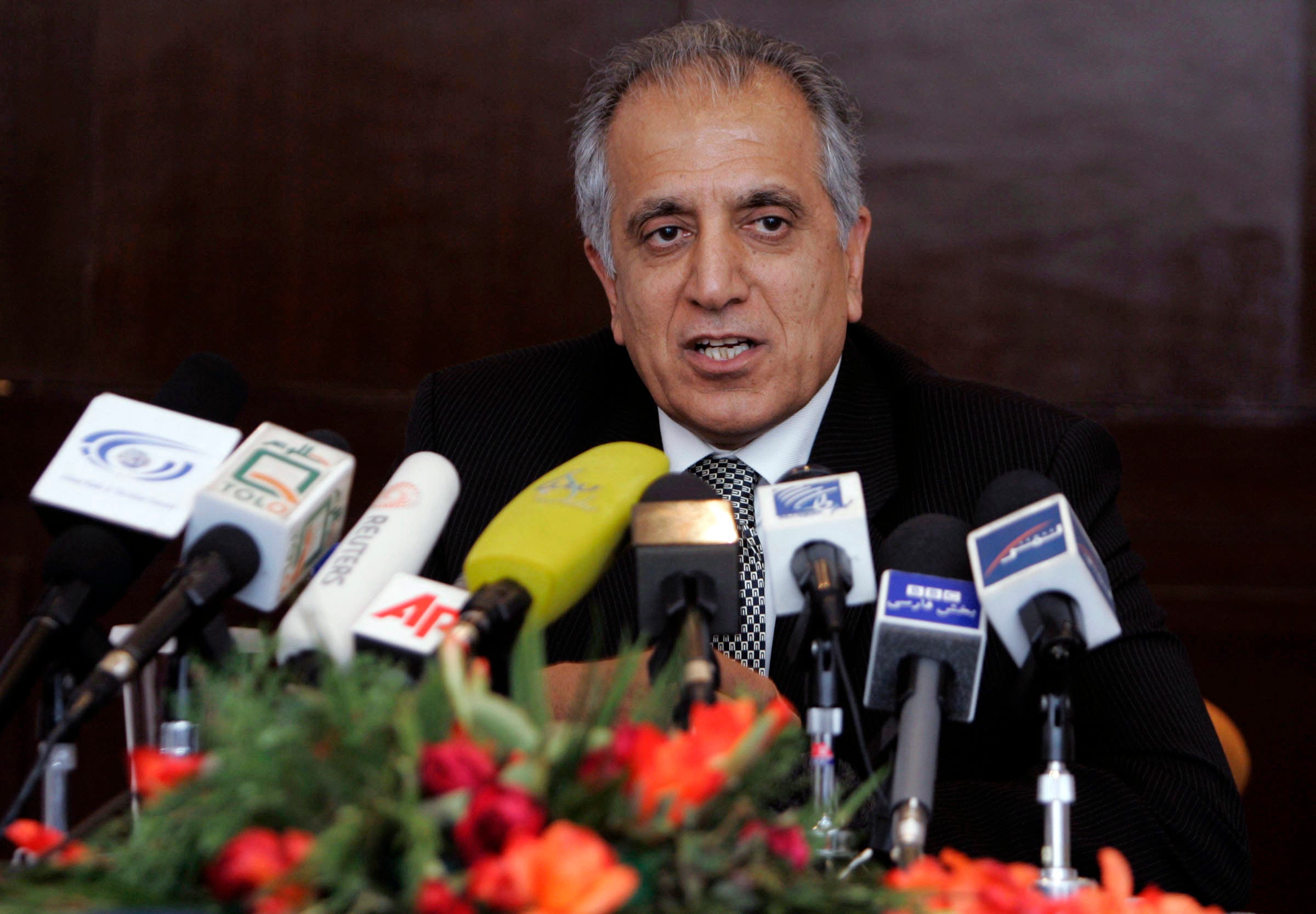Since September, US State Department Special Envoy, Zalmay Khalilzad has been making diplomatic efforts to bring about a peace settlement in Afghanistan prior to the presidential elections scheduled in April, 2019 in the country.
Achieving a breakthrough recently, talks were initiated between the US and Afghan Taliban teams in Abu Dhabi this week. Held in the presence of officials from Pakistan, Saudi Arabia and the UAE, these talks are the second time that the US has been facilitated by Pakistan in establishing direct contact with the Afghan Taliban.
Last held in July 2015 in the hill resort of Murree outside Islamabad, the first round of talks had yielded no result. Seeking to end the 17-year long conflict, Washington has engaged in the dialogue but avoided mentioning any direct contact between Khalilzad and the Afghan Taliban.
Officially, the announcement was that meetings in the UAE were being held to “promote an intra-Afghan dialogue towards ending the conflict.” Meanwhile, affirming the negotiations, the Afghan Taliban said that preliminary talks were held with Khalilzad and “extensive” meetings were also held with officials from Pakistan, Saudi Arabia and the UAE while pointedly refusing to have met any official from the Afghan government.
However, led by Abdul Salam Rahimi, a single-member negotiating team representing the Afghan government is said to have been present. Achieving a military victory has not been possible for either side and restoring peace is the only practical way to end the crisis in Afghanistan.
Breaking the stalemate
But breaking this stalemate is not going to be easy without achieving a modicum of understanding between the Taliban and the Afghan government, even though the Taliban hold a significant part of Afghanistan they are nowhere near toppling the administration in Kabul.
Notwithstanding these difficulties, the international community has been more optimistic about this latest peace process than ever before. Commenting on the recent US-Afghan Taliban overtures at the UN Security Council, head of the UN mission in Afghanistan Tadamichi Yamamoto said: “The possibility of a negotiated end to the conflict has never been more real in the past 17 years than it is now.”
Having visited Afghanistan, Pakistan, Russia, Uzbekistan, Turkmenistan and Belgium on a whirlwind 18-day trip, Khalilzad’s efforts for a satisfactory solution show some urgency this time.

US State Department Special Envoy, Zalmay Khalilzad, in Kabul on March 13, 2009. (AP)
Though the Afghan Taliban are adamant over being given an exact time-frame for the withdrawal of US troops before they actively engage in the peace process, these efforts should help to clear the air. Organized by Pakistan, these talks are being held in the United Arab Emirates on the request of the United States.
Appreciating Pakistan’s role in the whole matter, the US spokesperson said, “We welcome any actions the Pakistani government takes to advance security, stability and cooperation in South Asia, including the fostering of negotiations between the Taliban, the Afghan government and other Afghans.”
Trump and Pakistan
Taking place after a recent letter from US President Donald Trump to Pakistani Prime Minister Imran Khan, these new developments have “emphasized that Pakistan’s assistance with the Afghan peace process is fundamental to building an enduring US-Pakistan partnership.”
Even though the Trump administration had taken a tough stance on Pakistan initially, the US-Pakistan relationship seems to have settled down in a familiar pattern as observed over the decades.
Following the peace talks in Moscow, the Abu Dhabi peace process is much more significant as it brought Afghan government officials and Taliban representatives to one table and helps to break the ice.
Though these were not exactly one to one talks between both parties, it would help to build their mutual comfort level and eventually bring about a peace settlement. Too much time has been lost and matters might have worsened irretrievably, according to research analyst and US army veteran Adam Weinstein, “Recreating this missed opportunity nearly two decades later will prove difficult.”
Having cost the $1 trillion since 2001, this war effort has gone on much longer than might have been originally planned. As of now, the Afghan Taliban hold at least half of Afghanistan and bringing them to the table is the only practical solution. Due to its historical involvement in Afghanistan in the Afghan war in 1978-92, Pakistan retains links but these have depleted and dwindled with time.
Additionally, Russia and Iran have also established close contacts with the Afghan Taliban over the years as can be deduced from the talks in November. Thus, the Taliban cannot be said to be dependent on any one nation and only an Afghan-led and Afghan-owned peace process will work in this war-torn country.
Bringing stability back to Afghanistan is only in the hands of the Ghani administration in Kabul or the Afghan Taliban themselves. Nevertheless, this is a good beginning and the first real signal that peace may prevail in Afghanistan.
________________________________
Sabena Siddiqui is a foreign affairs journalist and geopolitical analyst with special focus on the Belt and Road Initiative, CPEC and South Asia. She tweets @sabena_siddiqi.
Sabena Siddiqui is a foreign affairs journalist and geopolitical analyst with special focus on the Belt and Road Initiative, CPEC and South Asia. She tweets @sabena_siddiqi.
Last Update: Thursday, 20 December 2018 KSA 11:50 - GMT 08:50
- Get link
- X
- Other Apps
- Get link
- X
- Other Apps
Comments
Post a Comment